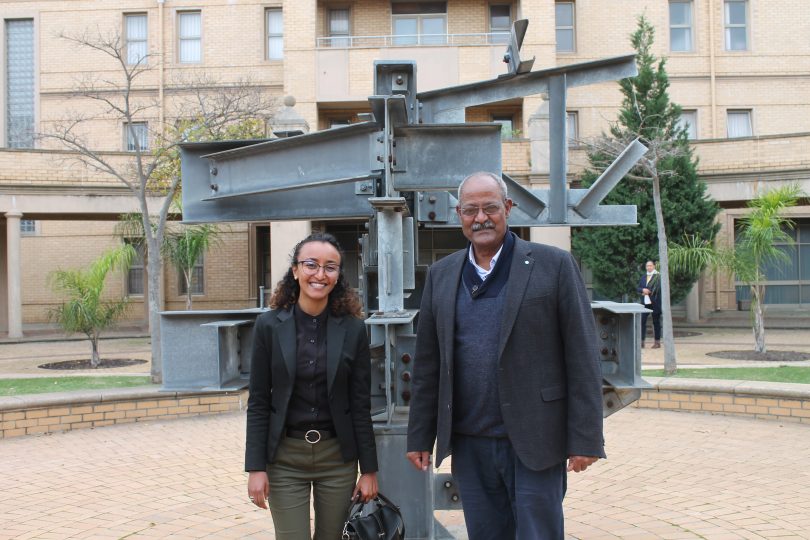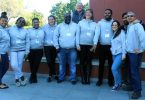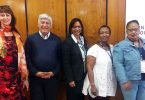Representatives of the Pan African University recently visited CPUT to check out the newest addition to the PAU.
A post-graduate training and research network of university nodes in five regions, supported by the African Union, the PAU was officially launched in 2011. It aims to provide opportunities for advanced graduate training and postgraduate research to high-performing African students.
Prof Tsige Gebre-Mariam, of the School of Pharmacy at the Addis Ababa University in Ethiopia, and PAU programme assistant Heromen Asefa Fetale visited CPUT on a fact-finding mission. They were investigating our research policies, graduate programmes and procedures around publications as we become the southern African university institute of the PAU.
The universities which house institutions centred on different science research focus areas are deliberately spread across north, west, east, central and southern Africa and each is selected on the basis of excellence displayed in a particular science programme. CPUT’s Space Programme was what won us the opportunity to be the coordinator of the PAU Space Sciences Programme.
The other institutes which make up the PAU are:
- PAU Institute for Water and Energy Sciences (including Climate Change) situated at the Abou Bekr Bekaid University of Tlemcen, Algeria.
- PAU Institute for Life and Earth Sciences (including Health and Agriculture) at the University of Ibadan, Nigeria.
- PAU Institute for Governance, Humanities and Social Sciences at the University of Yaoundé, Cameroon.
- PAU Institute for Basic Sciences, Technology and Innovation at the Jomo Kenyatta University of Agriculture and Technology in Nairobi, Kenya.
Gebre-Mariam is drawing on his experience working on research policies when he helped to found the Academy of Sciences (a Pan African organisation headquartered in Kenya which aims to drive sustainable development in Africa through science, technology and innovation).
“The idea is to have a centre of excellence in each geographic location, for the knowledge it diffuses inwards,” explained Gebre-Mariam.
The various institutes are aimed at post graduate students.
“At any given time 70% of the students studying in the programme should come from countries other than the host country. Staff as well,” said Gebre-Mariam.
Written by Theresa Smith







